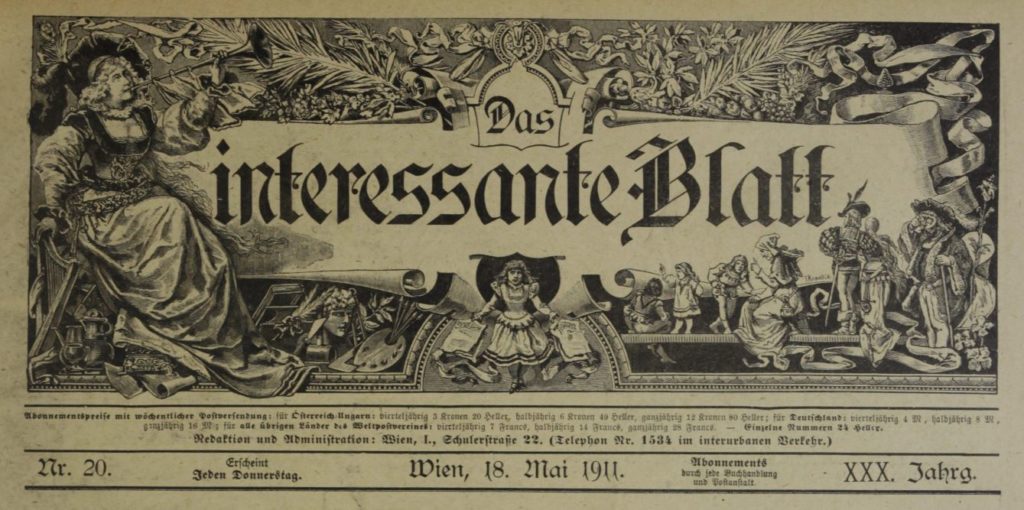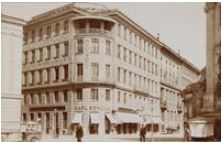- Year 1902. 09-03-1902. Marriage Gustav Mahler (1860-1911) and Alma Mahler (1879-1964).
Karlskirche (St. Charles’s Church) is a baroque church located on the south side of Karlsplatz in Vienna, Austria. Widely considered the most outstanding baroque church in Vienna, as well as one of the city’s greatest buildings, Karlskirche is dedicated to Saint Charles Borromeo, one of the great counter-reformers of the sixteenth century.
Located on the edge of the Innere Stadt, approximately 200 meters outside the Ringstraße, Karlskirche contains a dome in the form of an elongated ellipsoid. Since Karlsplatz was restored as an ensemble in the late 1980s, Karlskirche has garnered fame due to its dome and its two flanking columns of bas-reliefs, as well as its role as an architectural counterweight to the buildings of the Musikverein and of the Vienna University of Technology. The church is cared for by a religious order, the Knights of the Cross with the Red Star, and has long been the parish church as well as the seat of the Catholic student ministry of the Vienna University of Technology. Next to the Church was the Spitaler Gottesacker. Antonio Vivaldi was buried there.
The iconographical program of the church originated from the imperial official Carl Gustav Heraeus and connects St. Charles Borromeo with his imperial benefactor. The relief on the pediment above the entrance with the cardinal virtues and the figure of the patron on its apex point to the motivation of the donation. This sculpture group continues onto the attic story as well. The attic is also one of the elements which the younger Fischer introduced. The columns display scenes from the life of Charles Borromeo in a spiral relief and are intended to recall the two columns, Boaz and Jachim, that stood in front of the Temple at Jerusalem. They also recall the Pillars of Hercules and act as symbols of imperial power. The entrance is flanked by angels from the Old and New Testaments.
This program continues in the interior as well, above all in the dome fresco by Johann Michael Rottmayr of Salzburg and Gaetano Fanti, which displays an intercession of Charles Borromeo, supported by the Virgin Mary. Surrounding this scene are the cardinal virtues. The frescos in a number of side chapels are attributed to Daniel Gran.
The high altarpiece portraying the ascension of the saint was conceptualized by the elder Fischer and executed by Ferdinand Maxmilian Brokoff. The altar paintings in the side chapels are by various artists, including Daniel Gran, Sebastiano Ricci, Martino Altomonte and Jakob van Schuppen. A wooden statue of St. Anthony by Josef Josephu is also on display.
As strong effect emanates from the directing of light and architectural grouping, in particular the arch openings of the main axis. The color scheme is characterized by marble with sparring and conscious use of gold leaf. The large round glass window high above the main altar with the Hebrew Tetragrammaton/Yahweh symbolizes God’s omnipotence and simultaneously, through its warm yellow tone, God’s love. Below is a representation of Apotheosis of Saint Charles Borromeo.
Next to the structures at Schönbrunn Palace, which maintain this form but are more fragmented, the Karlskirche is Fischer’s greatest work. It is also an expression of the Austrian joie de vivre stemming from the victorious end of the Turkish Wars.
Entrance sakristei. Kreuzherrengasse No. 1. Karlskirche.
Entrance sakristei. Kreuzherrengasse No. 1. Karlskirche.
Entrance sakristei. Kreuzherrengasse No. 1. Karlskirche.
Map summer sakristei. Karlskirche.
Summer sakristei. Credence C. Karlskirche.
Summer sakristei. Credence B. Karlskirche.
Summer sakristei. Altar. Karlskirche.
Summer sakristei. Medallion with liturgical device. Karlskirche.




